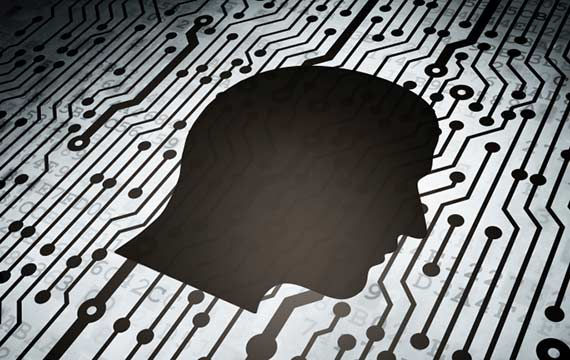Understanding Cognitive Skills: The Hidden Key to Learning Success
- NeuroAide

- Dec 17, 2024
- 3 min read

Imagine it’s your first day at a new job. 💼You and your new colleagues are each given a computer and assigned a project.
Your peers were given brand-new laptops, with the latest operating software, connected to high-speed Wi-Fi.
You are given a machine that looks like it was built in 1980. 😟 It uses dial-up internet (what even is that?!) and the letter “E” key is missing.
You are expected to complete the same assignment as your peers, in the same time frame.
Frustrating, right?! 😤 This is what school might feel like for students with deficits in their underlying cognitive skills.
Here's the ✨ good news: ✨Just like upgrading a computer, we can develop and strengthen cognitive skills. Every student has incredible potential – sometimes they just need the right support to unlock it.
What Are Cognitive Skills?

🧠 Cognitive skills are the fundamental mental abilities that help us process, understand, and act on information. Think of them as the "operating system" of learning. Just like a computer needs a robust system to run smoothly, our brains need well-developed cognitive skills to learn effectively.
Schools are mandated to teach content, not skills. When underlying cognitive skills are not supporting the student, they will not be able to access, understand, and apply the content taught in the classroom.
Cognitive skills are not the same as intelligence. A student might be incredibly smart but still struggle with learning due to underlying cognitive challenges.
Three Critical Areas of Cognitive Development
💃 Body-Brain Integration
This refers to how the body and brain work together. Babies and toddlers learn through movement. These experiences establish the neurological foundation for balance, coordination, and learning. When these connections aren't as strong as they could be, an individual might struggle to sit still, have difficulty with handwriting, or find physical activities challenging – not because they lack ability, but because their body and brain aren't communicating as efficiently as they could.
⏳ Processing Skills
Processing skills are like the CPU of our brain. They determine how quickly and effectively we can:
Take in information
Remember what we've learned
Listen and comprehend
Manipulate and use information
A student with processing challenges might need more time to understand instructions, struggle to follow multi-step directions, or find it difficult to keep up in fast-paced learning environments. But this isn't a limitation – it's an opportunity for targeted support.
🗄️ Executive Function
Executive function is our brain's management system. It helps us:
Plan and prioritize
Manage time
Control impulses
Stay focused
Organize our thoughts and materials
Students with executive function challenges seem disorganized or struggle to complete assignments. As adults, individuals with executive function challenges may procrastinate on simple tasks or struggle to manage personal finances.
☝️But these skills can be developed and improved with the right approach.
Assessment and Intervention: A Path Forward
The first step is understanding a student's unique cognitive profile. This isn't about labeling or limiting – it's about creating a personalized 🗺️ roadmap for success. A comprehensive assessment can reveal:
Specific strengths
Areas for development
Tailored strategies for learning
Intervention is individualized and collaborative 🤝. Cognitive training and academic interventions are never one-size-fits-all. Intervention plans should be individualized and flexible. Students have the highest rates of success when their families, educators, and specialists collaborate to support their learning journey.
💪 Empowerment is Everything
Cognitive challenges are not roadblocks. They're opportunities for growth.
Every student has incredible potential waiting to be unlocked. With understanding, support, and the right strategies, students can develop the cognitive skills they need to succeed.
Your Next Steps
If you're reading this and seeing your own or your child's struggles reflected in these descriptions, take a deep breath. 😮💨
Recognizing cognitive challenges is not a sentence of limitation, but a powerful first step toward understanding and growth.
These differences in how we process and interact with information are not deficits – they're simply unique ways of experiencing the world. Every individual has remarkable strengths waiting to be discovered and developed.
The journey of understanding and supporting cognitive skills is not about fixing something that's broken, but about illuminating pathways to learning that are perfectly tailored to your unique brain.
Seeking an evaluation is not a judgment, but an act of compassion – for yourself or your child. It's an opportunity to gain insights, develop strategies, and unlock potential that may have been obscured by frustration or misunderstanding.

Learning isn't about having a perfect "computer" – it's about understanding how to optimize the incredible machine we already have. Your potential is limitless.




